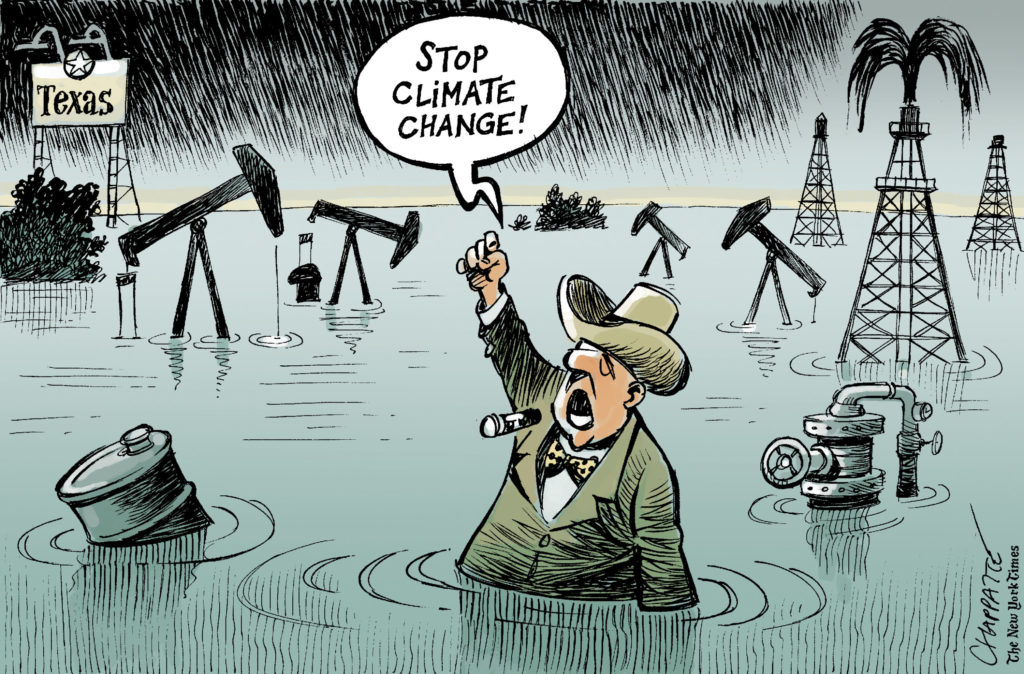The multipolar world succeeding US hegemony in the early 21st century, the financial crisis of 2007 and the corollary decline of liberalism seem to have ushered in an era of economic nationalism. States are increasingly left to fend for themselves as multilateral mechanisms lose traction and international economic relations gain in toxicity. The sanctions, embargoes and retaliations arising from the war in Ukraine, but also an accelerating struggle for dwindling natural resources, have pushed these logics to new heights. This Dossier assesses ongoing geoeconomic transformations and their potentially devastating consequences.
© Chappatte in Le Temps, Geneva
Neoliberal globalisation has not only transformed the role of the state; it has also shaken up the internal “DNA” of education policies, from schools to universities. New technologies have paved the way for new forms of transmitting knowledge; calls to decolonise curricula are growing louder; in the South, many countries face the challenge of financing public education policies in an era of new public management, while the model and transfer of these policies have become a key problem, compounded by the exclusion of historically marginalised populations and the advance of private and religious players. Against this backdrop of criticism of the public education model, the present Dossier seeks to better apprehend what could be done to restore the purpose and meaning of education and universities.
-
I

Universities in the 21st Century: A Changing Global Landscape
Reading time: 5 min -
1

Futures of Higher Education and the Recovery of Purpose
Reading time: 6 min -
2

Reimagining Education in the Knowledge Society
Reading time: 5 min -
3

Education Policies: Foundational Research beyond Agenda Setting
Reading time: 5 min -
4

AI in Education and Research: Towards a More Ethical Engagement
Reading time: 6 min -
5

Data Assets and the Future Governance of Higher Education
Reading time: 6 min -
6

Higher Education, Decolonisation and the Global South
Reading time: 5 min -
7

University and Migration: New Directions for African Students
Reading time: 5 min -
8

The Conundrum of Race and Affirmative Action in Higher Education
Reading time: 7 min -
9

The Sino-American Competition in Higher Education
Reading time: 4 min -
O

Resources of the Geneva Graduate Institute in the Field of Higher Education
Reading time: 3 min
After the outbreak of COVID-19 – a virus constituting a genuinely worldwide risk – fear internationalised in just a few weeks. As the COVID crisis has profoundly shaken societies on a global scale it has contributed to a reconfiguration – perhaps a multiplication – of risks and their perceptions. While foremost constituting a biological hazard, the pandemic has large repercussions on other types of risks, ranging from long-term economic and digital disruption to psychological distress and political confrontation. The nature and frontiers of risks are thus moving as the multilateral system, the most adequate framework to deal with global risks, is ailing and current risk mitigation strategies are increasingly put to question. The six articles of the present Dossier explore these changing hierarchies of risk and the underpinning structural issues that endanger our existence.

